Growing Cannabis Outdoors: How To Build A Greenhouse
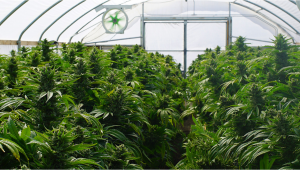
- 1. Greenhouse
- 2. Choose a design
- 3. Requirements
- 3. a. Airflow
- 3. b. Sunlight
- 4. Materials
- 5. Setting up a greenhouse step-by-step
- 5. a. Step 1: make the base of the greenhouse
- 5. b. Step 2: cut the pvc pipes and provide support
- 5. c. Step 3: building the side “walls”
- 5. d. Step 4: front and back “walls”
- 6. Objective
- 7. The main advantages of using a greenhouse for cannabis cultivation
- 7. a. Are there any disadvantages to using a greenhouse for cannabis crops?
- 7. b. Greenhouse maintenance
- 8. In conclusion
A greenhouse is usually used to protect cannabis seeds from cold temperatures, rain and snow, although it can help cannabis growers to have a discreet growing space. The structure of a greenhouse is also super helpful when using the light deprivation techniques, by using a black plastic sheet you can control the light cycle just like you would in an indoor grow tent.
1. Greenhouse
There are several types of greenhouses and all of them are very similar, even though you can buy a green house, building one can be easy. By growing in a greenhouse outdoors you can hide your plants, protect them from cold and even use the structure for plant training and support.
Growing in a greenhouse is a very effective way to protect your plants from cold climates, snow and rain, and keep your plants discreet. Greenhouses are widely used all over the world to grow vegetables, but cannabis growers have adapted them to be used with cannabis plants, this way, you can grow cannabis discreetly, protecting them from harsh environments and allowing you to control the light cycle for vegetative of flowering plants even outdoors by using the light deprivation technique.
There are several types of greenhouses, although all of them are very similar. The materials needed to build your greenhouse will depend on the climate in your area, greenhouses basically consist of a structure which holds a mesh or plastic sheet. The materials you’re going to use solely depend on the sturdiness and size you want your greenhouse to have.
2. Choose a design
There are basically four greenhouse designs: Lean-to, Tunnel, Gable and Hoophouse.
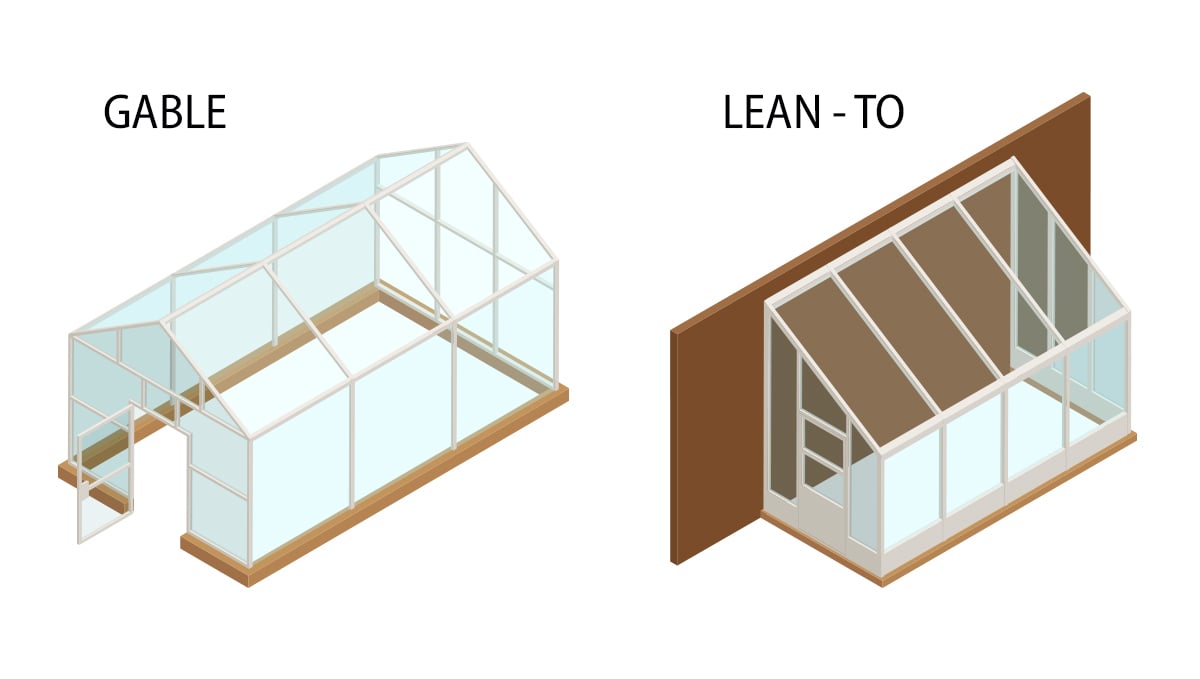
Even though you can build the bigger ones yourself, it’s better to leave them to people who have experience because they will need a sturdier structure, are usually made out of glass and because of their size, you’ll probably need specific machines to build them without risking yourself or your plants.
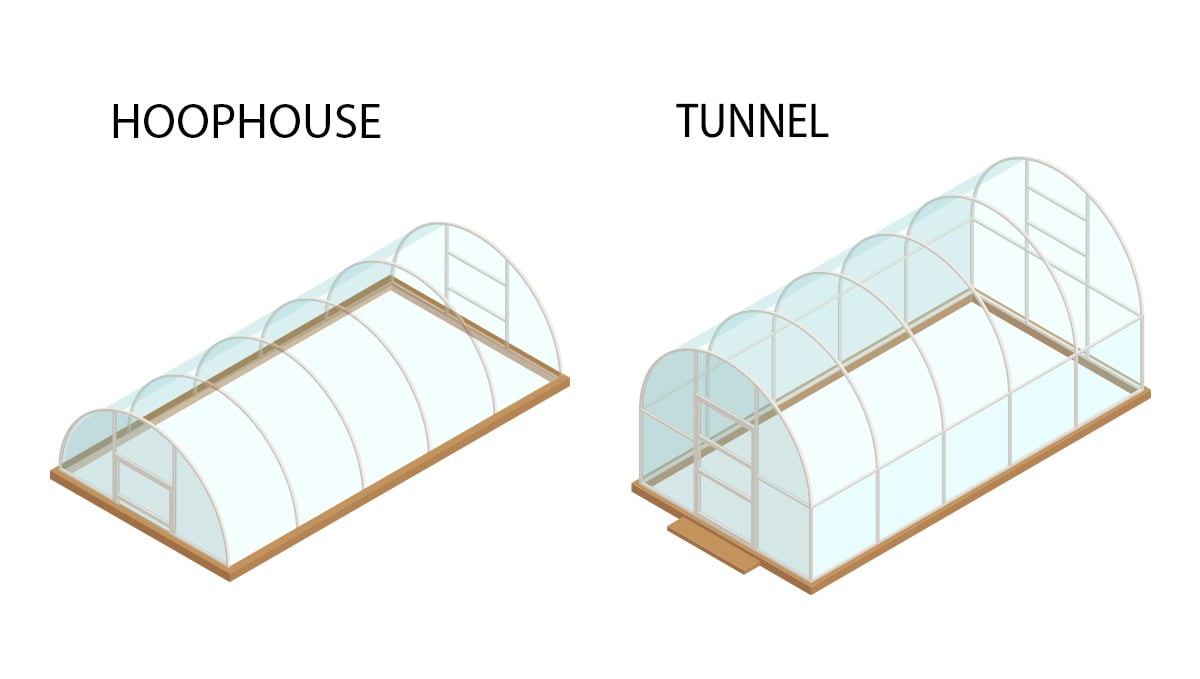
These structures are built to grow cannabis or other plants commercially, but don’t worry, there are greenhouses suited for home growers, they are easier to build and depending on the size, you can make them out of wood or plastic (although a metal structure would be better and more resistant).
3. Requirements
Airflow
Before starting, there are a couple of things you need to have in mind. First of all, you will need to control the temperature and humidity levels, to be able to do this you need proper airflow, if you’re building a tunnel, you can install fans to help you maintain a good ventilation or if you’re planning to build a small hoop-house, small windows on the bottom and on top will allow a good air exchange and help expel the hot air.
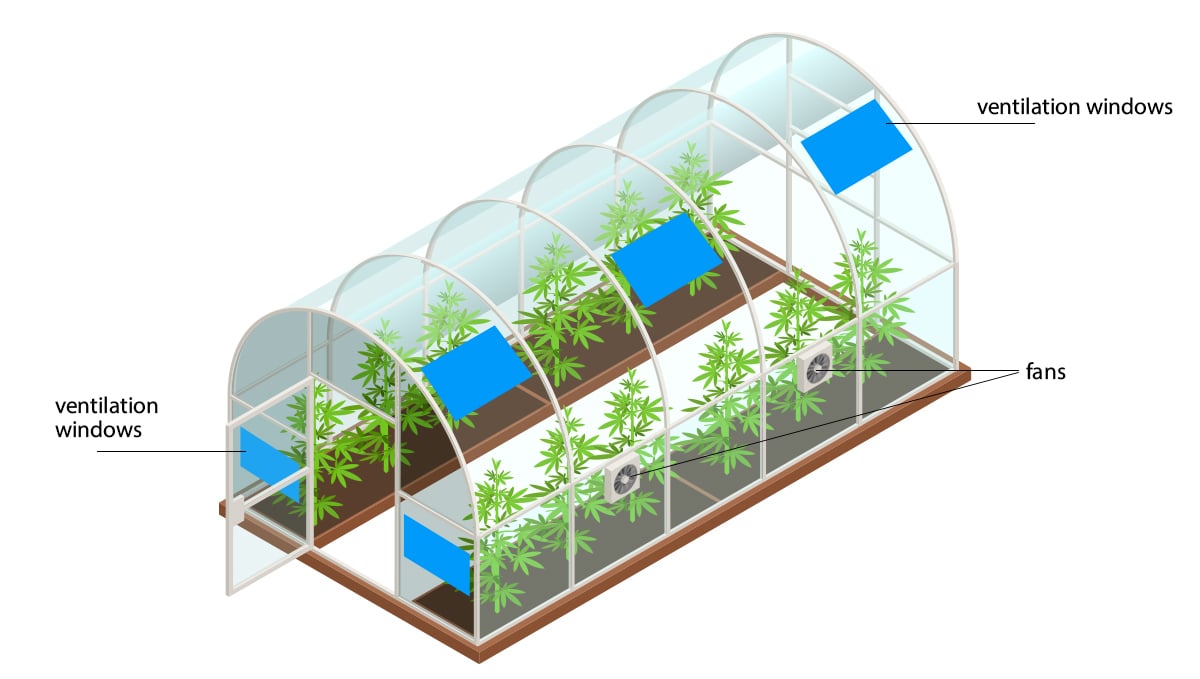
Have in mind that depending on the climate, you may also need a humidifier or dehumidifier to keep the appropriate humidity levels.
Sunlight
Because you’re growing outdoors, you also have to choose a good location, where your plants will get as much sunlight as you can. You have to build your greenhouse facing the direction where the sun rises, for example, in California the sun rises in the northeast and sets in the northwest, by building your greenhouse accordingly, you ensure the sun will go over your plants and they will receive sunlight all day long.
Also make sure there are no buildings or trees blocking the sun, even though you can grow your plants with less sunlight, consistent sunlight will make a huge difference in their development.
4. Materials
The materials depend on the sturdiness you want to achieve, but here are the most usual materials to build a small and reliable greenhouse for home growers.
- 40mm PVC pipes
- PVC connectors
- Polyethylene plastic sheeting (for cold climates) or Shade netting (for hotter climates)
- Wooden beams
- Wood boards (if you want to build a raised bed if you need to)
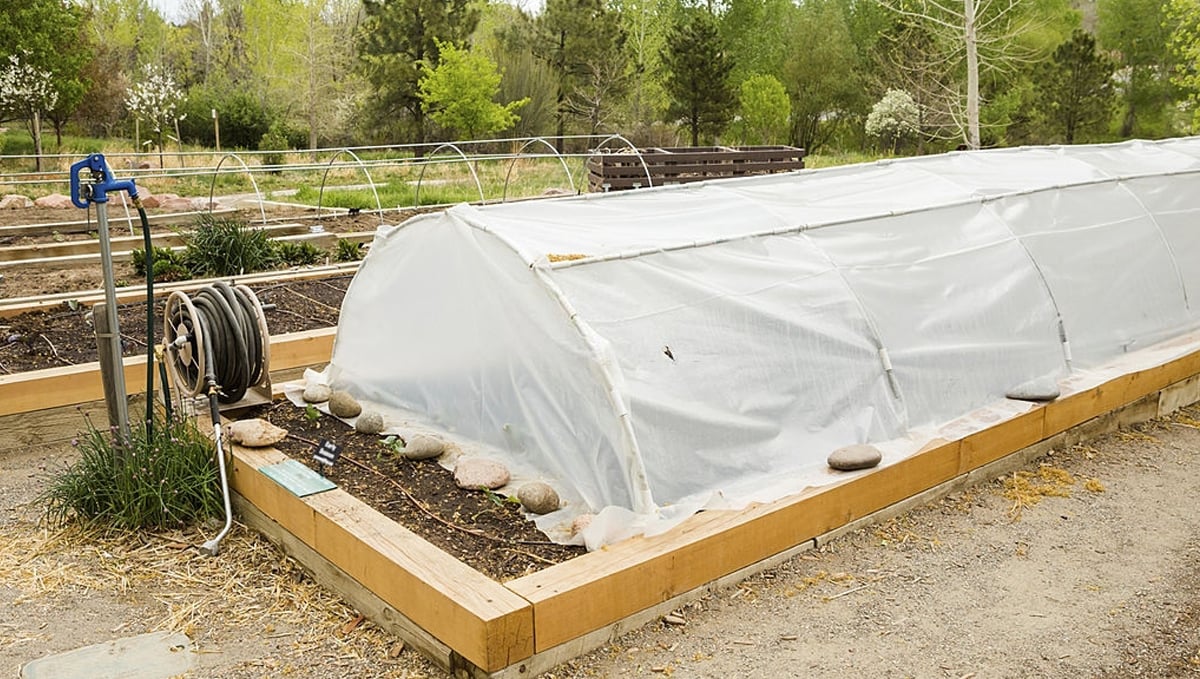
These materials are the basic and you can and should adjust according to what you have available and what you think would be better for you, remember this is a general guideline and in no way is the only way to build a greenhouse.
5. Setting up a greenhouse step-by-step
Step 1: Make the base of the greenhouse
The first step is to decide if you’re going to grow in raised beds or if you’ll need to anchor the base of the greenhouse in the dirt. If you want to grow in raised beds, you’ll have to make them out of wooden boards, have in mind they’ll also be the base where you’ll attach the pvc pipes so they need to be quite sturdy, you’ll then attach the PVC pipes to them with metal clamps, just like this:
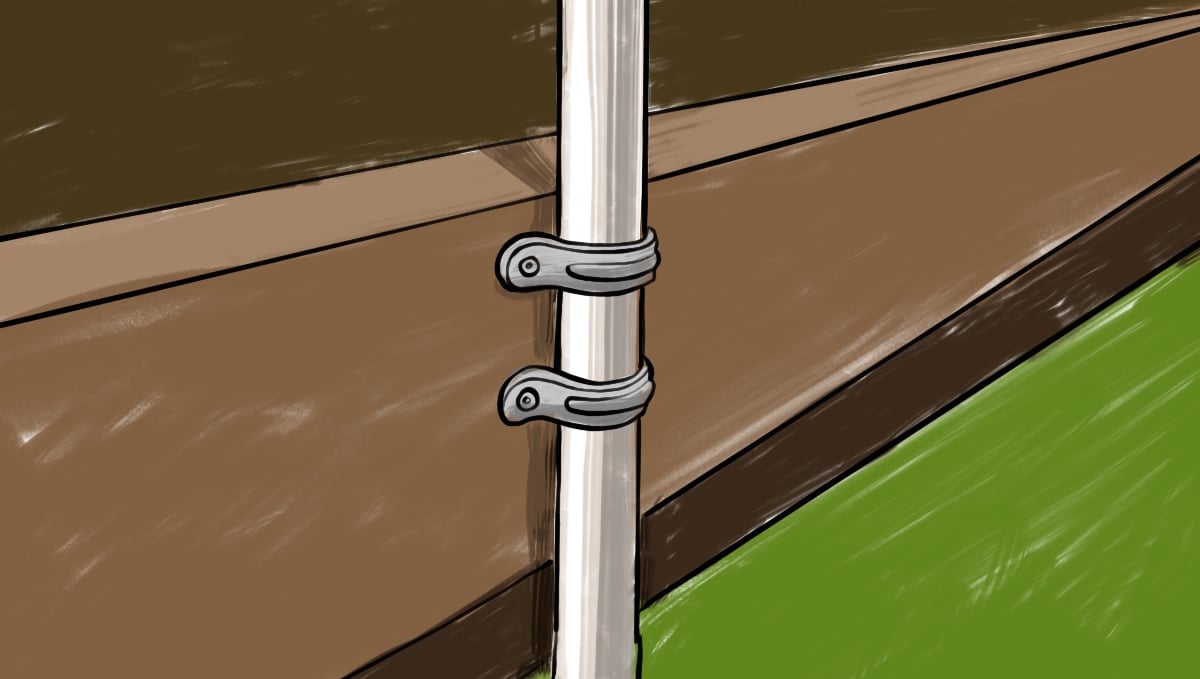
If you’re building the greenhouse in your backyard or somewhere you won’t need a raised bed, you can use wooden or metal beams to anchor the PVC pipes to the ground or even make a solid foundation to hold the main frame of the greenhouse.
If you want a discreet greenhouse it's better to build a small one because even though it will be covered, people might get suspicious.
Step 2: Cut the PVC pipes and provide support
You can use one long PVC pipe to make the structure or cut it in half and use PVC connectors to connect them at the top, it really doesn’t matter as long as you make it sturdy. Make sure you also have a PVC pipe on top to provide more stability, after you connected everything together, it is time to make the structure that will hold the PVC pipes steady.
This structure it’s what will hold your greenhouse together in a storm or if you experience strong wind so it’s better to make it out of wood, in this step it will also be when you decide if you should add a door or not. The length of the PVC pipes depends on the size of your greenhouse, it really doesn’t matter as long as the final result is something like this:
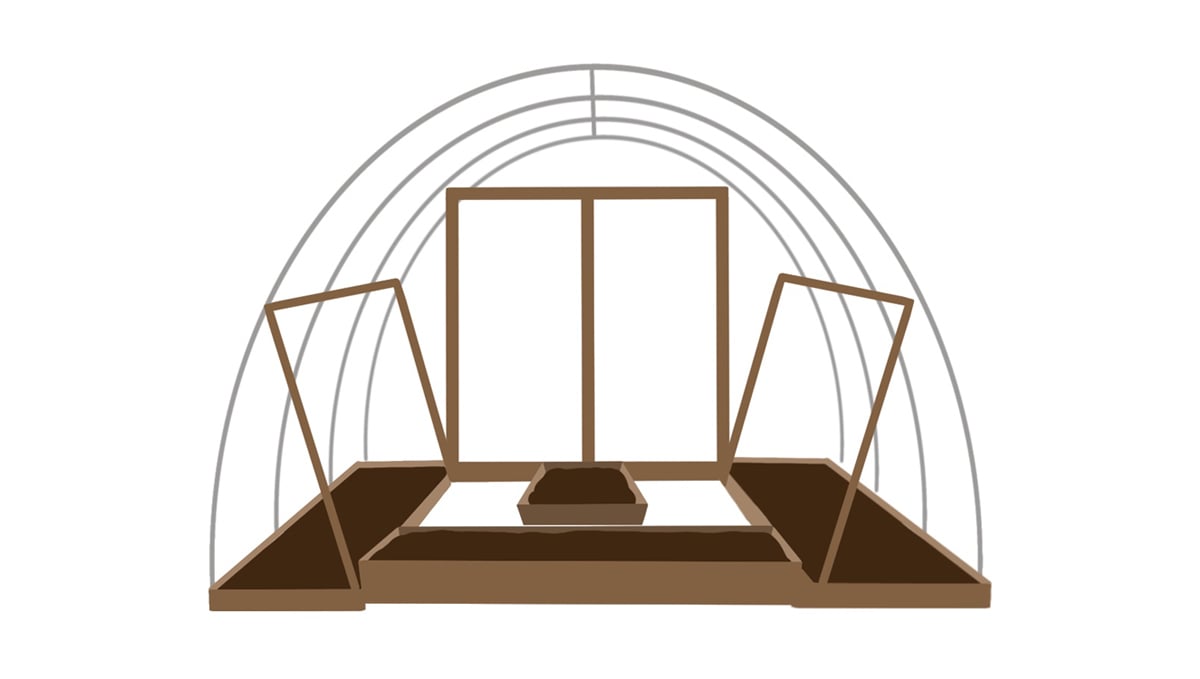
It’s recommended to have a door if you want to keep things more discreet, but if you want to keep it simple, you can always use the plastic sheet as an improvised door and by glueing weights (like rocks or magnets) to the tips you make sure they stay in their place.
Step 3: Building the side “walls”
Depending on the climate, you will use different materials for the walls of your greenhouse, there are two types of materials you can use.
If you suffer from cold climates, it is recommended to use polyethylene, this will allow you to control temperatures and humidity better, also protecting your plants from extreme cold, and preventing bugs and pests. You can use a shade mesh instead of polyethylene, although this is only recommended if you are growing in warmer climates because you won’t be able to control the environment inside your greenhouse.
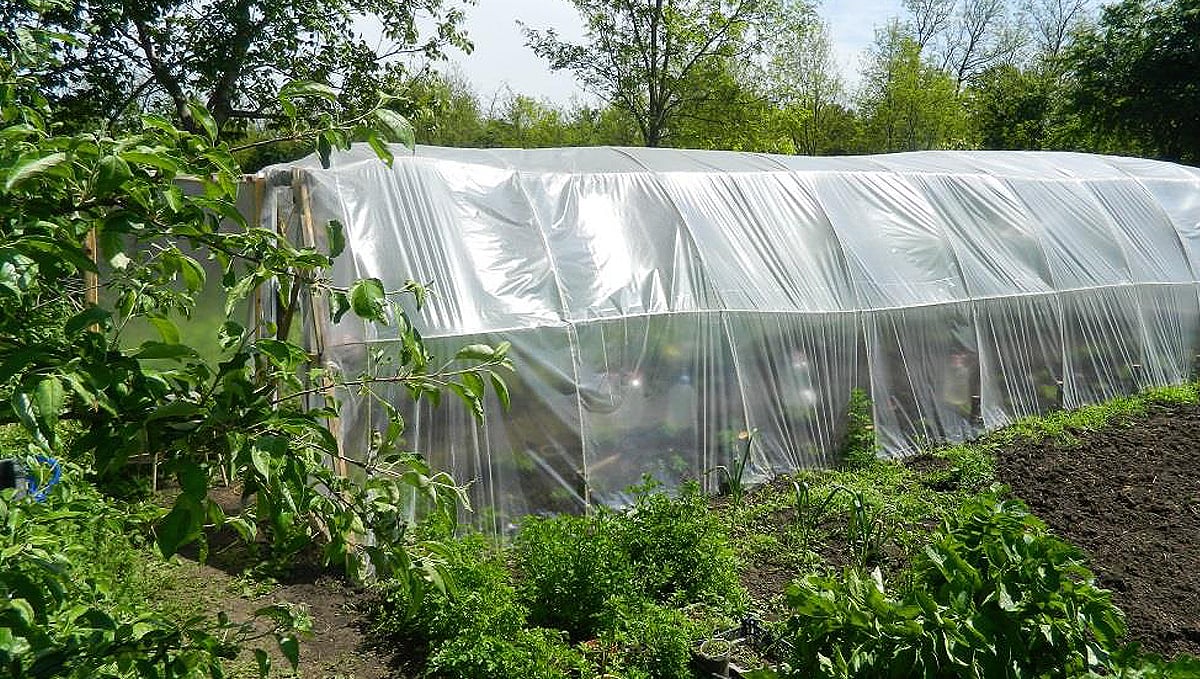
You can also adapt the structure so you’re able to change the polyethylene for a shade mesh when you need to, use the polyethylene sheet in the winter and the shade mesh in the summer, this will depend on the climate where you live and will help you prevent mold, for example.
The “walls” should be stuck to the structure with duct tape (or something similar) so they don’t rip open.
Remember that even if you’re growing outdoors, it is essential to keep a good environment for your plants, changing in between a plastic sheet and shade mesh will help you control this.
Step 4: Front and back “walls”
The front and end walls will be of the same material you’ve made the side walls. If you choose to have a door, then you will have to build the back wall with a structure similar to the one you build for the door.
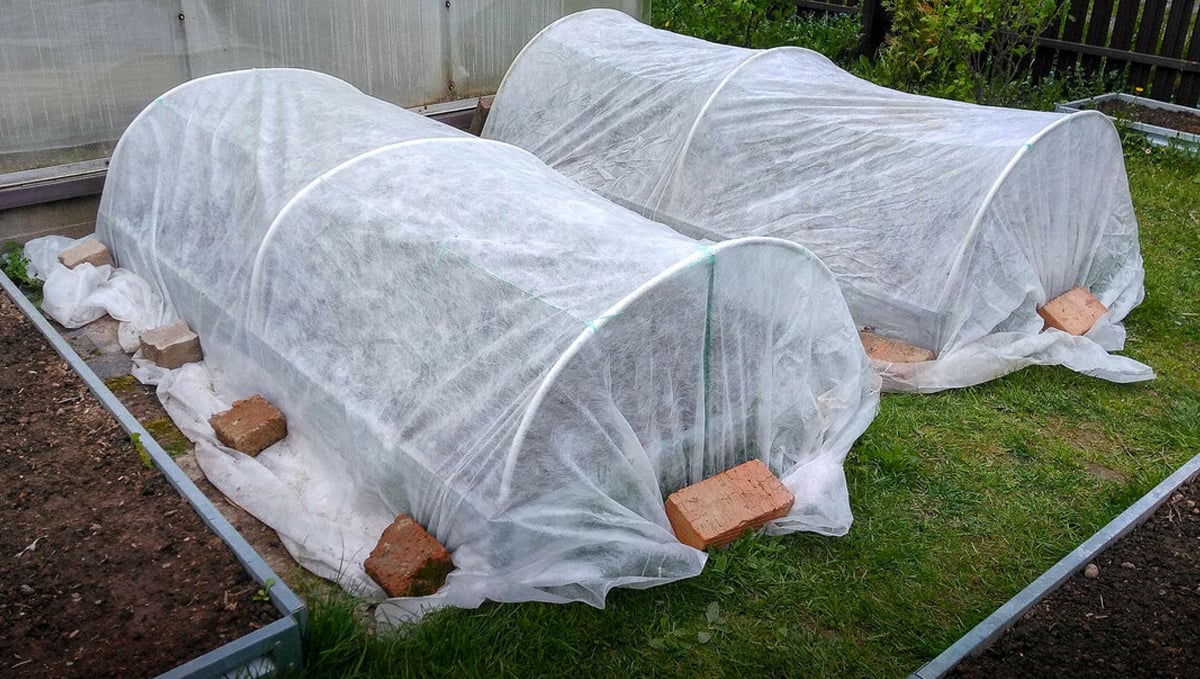
Don’t forget that if you’re going to have walls in the front and the end of your greenhouse, you will have to add small windows so the air can flow properly, this won’t be needed if you use a shade mesh or polyethylene sheet as the front and back door because they will not be completely closed so they allow air to go through, although it is recommended to have them because airflow is never too much.
Have in mind that the better you build them, the longer it will last, but the windows can be a hole in the walls or if you can make it better, you can build a frame, so you’re able to open and close them.
6. Objective
The result should be something like this:
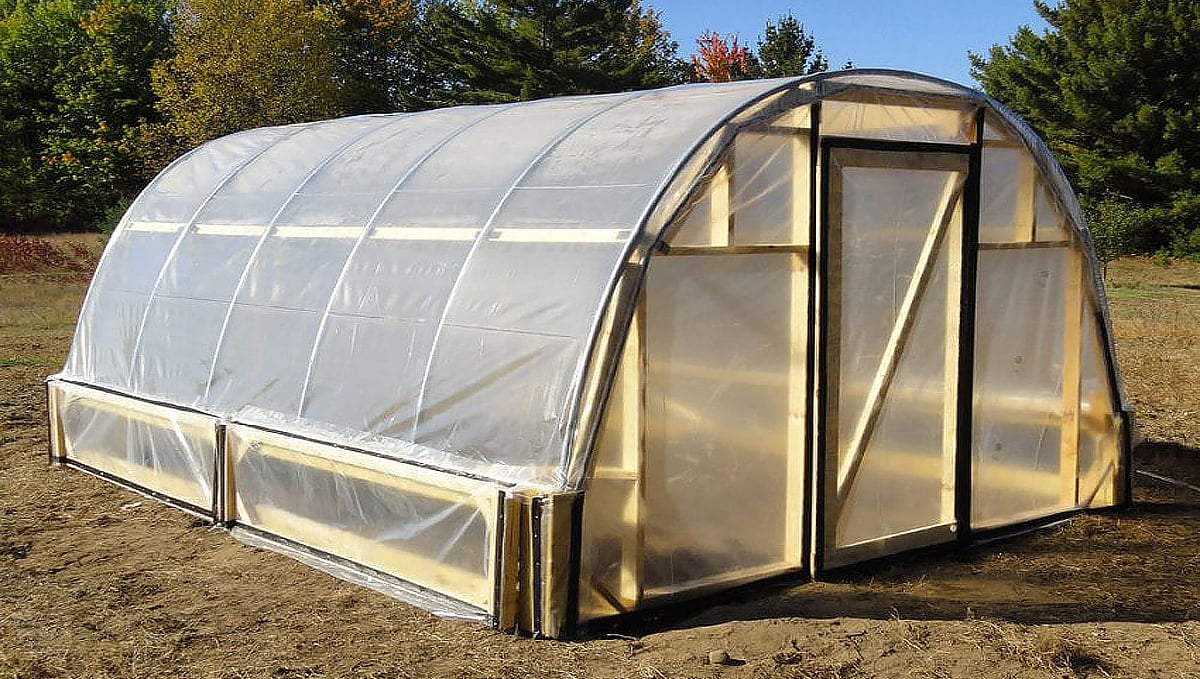
Obviously, it will depend on what was better for you, but as long as you covered the key elements, such as windows, doors, structure, and base, all greenhouses should look similar at least.
7. The Main Advantages of Using a Greenhouse for Cannabis Cultivation
So, there we have it. Our full guide on how to build an easy-to-construct and easy-to-use outdoor greenhouse for your autoflowering cannabis crop. but we haven't really delved into the main advantages of using a greenhouse for your cannabis cultivation needs just yet.
Protects your crop
Firstly, greenhouses are extremely useful when it comes to protecting your crop from adverse weather conditions, such as heavy rain or strong winds, which can drastically reduce the quality of your harvest. Outdoor cultivation is always a gamble, and while outdoor organic buds are some of the most sought-after in the world, there are no guarantees when it comes to Mother Nature. With a greenhouse, you can protect your crop from any unexpected weather events, drastically reducing the risk of crop failure. Greenhouse cannabis cultivation also allows for more precise temperature and humidity control - two crucial elements for successful cannabis cultivation that are difficult to regulate outside of a greenhouse environment.
Maximizes yields
Greenhouses also provide you with the perfect growing conditions when it comes to maximizing your crop yield. With a greenhouse, you can extend the growing season by starting earlier and ending later - something that simply isn't possible with traditional outdoor growing techniques. With a greenhouse setup, you can easily add additional light outside of the normal sunlight hours which allows for longer vegetation and flowering times, thus resulting in better harvests.
Reduces pests and diseases
Greenhouse cultivation also allows you to reduce the number of pests and diseases that can have a seriously damaging effect on your crop. Outdoor crops are at the mercy of whatever creepy crawlies and diseases may be lurking in the vicinity, but with a greenhouse setup, you can control exactly what comes into contact with your crop and therefore drastically reduce any risk of pest or disease-related crop failure.
Less energy usage
Greenhouse cultivation also has the added advantage of reducing your energy usage compared to indoor cultivation techniques. Even if you have supplemental lights to increase the growing season, you are going to be cutting out a huge chunk of the light usage thanks to the sun doing the majority of the work.
Are There any Disadvantages to Using A Greenhouse for Cannabis Crops?
As you may have guessed, greenhouses do come with some drawbacks too. They can be expensive to construct and require a certain level of maintenance in order to keep your plants healthy and pest-free. They can also be difficult to heat during the colder months or keep cool during the middle of a blazing hot summer, meaning you may have to invest in additional heating and cooling equipment.
Finally, there is the issue of security. Greenhouses offer a huge amount of discretion when compared to full outdoor growing, but they are still far more visible than indoor grow setups. If you live in a country or state where cannabis cultivation is still illegal, then you may want to think twice about building a greenhouse, and generally we do not suggest growing weed at all if it puts you on the wrong side of the law - but if you do go ahead with it, make sure that it is tucked away in the corner of your garden and not overly visible to the neighbors.
Overall, greenhouses are a great way to grow high-quality cannabis crops with minimal risk and maximum efficiency. If you have the budget for the upfront costs of construction, then it is definitely worth investing in one - just make sure to consider the potential disadvantages first.
Greenhouse Maintenance
Ok, so you've gone to a pretty substantial effort to build a great greenhouse. Awesome. Don't get complacent though, the work isn't over. It's actually never over when it comes to the greenhouse unless you want the space to last less than a full growing season. Of course, this is pretty dependent on what sort of job you with building it in the first place, but even the best greenhouses need upkeep. Things to look out for include -
- Checking the structure regularly
- Keeping the covering clean for maximum light penetration
- Ensuring adequate ventilation without letting in too much wind
- Checking the wiring and heating/cooling systems
As long as you keep an eye out for any structural issues, and give the space a deep clean between crops including the regular maintenance checks, you should be able to keep your greenhouse in top condition for years.
8. In conclusion
A greenhouse is a great way to grow cannabis discreetly and can help you in harsher climates. Even though it may seem hard to build one, it is fairly cheap and will give you an advantage when trying to control the growing environment outdoors, we recommend trying it out even if you’re not into cannabis, a greenhouse is a great way to grow vegetables and fruits!








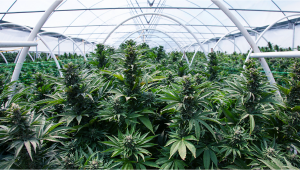
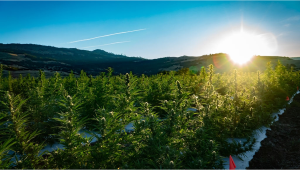
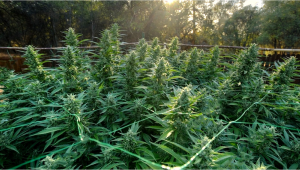



Comments